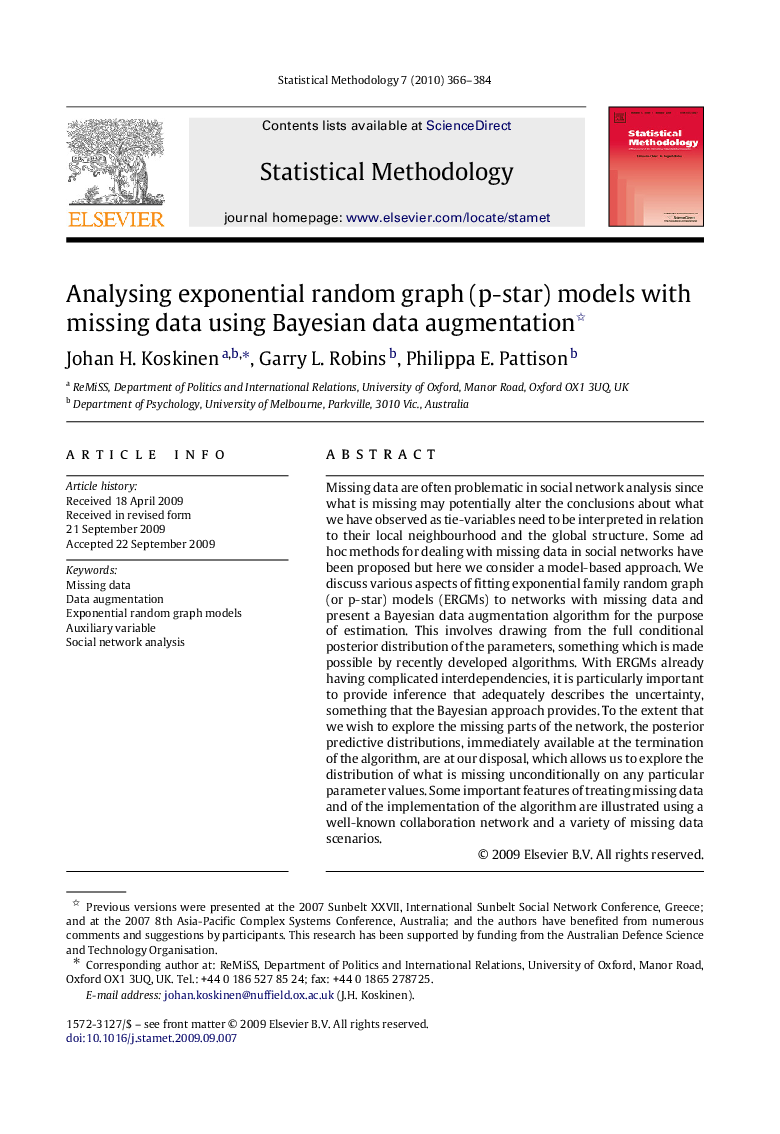| Article ID | Journal | Published Year | Pages | File Type |
|---|---|---|---|---|
| 1151020 | Statistical Methodology | 2010 | 19 Pages |
Missing data are often problematic in social network analysis since what is missing may potentially alter the conclusions about what we have observed as tie-variables need to be interpreted in relation to their local neighbourhood and the global structure. Some ad hoc methods for dealing with missing data in social networks have been proposed but here we consider a model-based approach. We discuss various aspects of fitting exponential family random graph (or p-star) models (ERGMs) to networks with missing data and present a Bayesian data augmentation algorithm for the purpose of estimation. This involves drawing from the full conditional posterior distribution of the parameters, something which is made possible by recently developed algorithms. With ERGMs already having complicated interdependencies, it is particularly important to provide inference that adequately describes the uncertainty, something that the Bayesian approach provides. To the extent that we wish to explore the missing parts of the network, the posterior predictive distributions, immediately available at the termination of the algorithm, are at our disposal, which allows us to explore the distribution of what is missing unconditionally on any particular parameter values. Some important features of treating missing data and of the implementation of the algorithm are illustrated using a well-known collaboration network and a variety of missing data scenarios.
